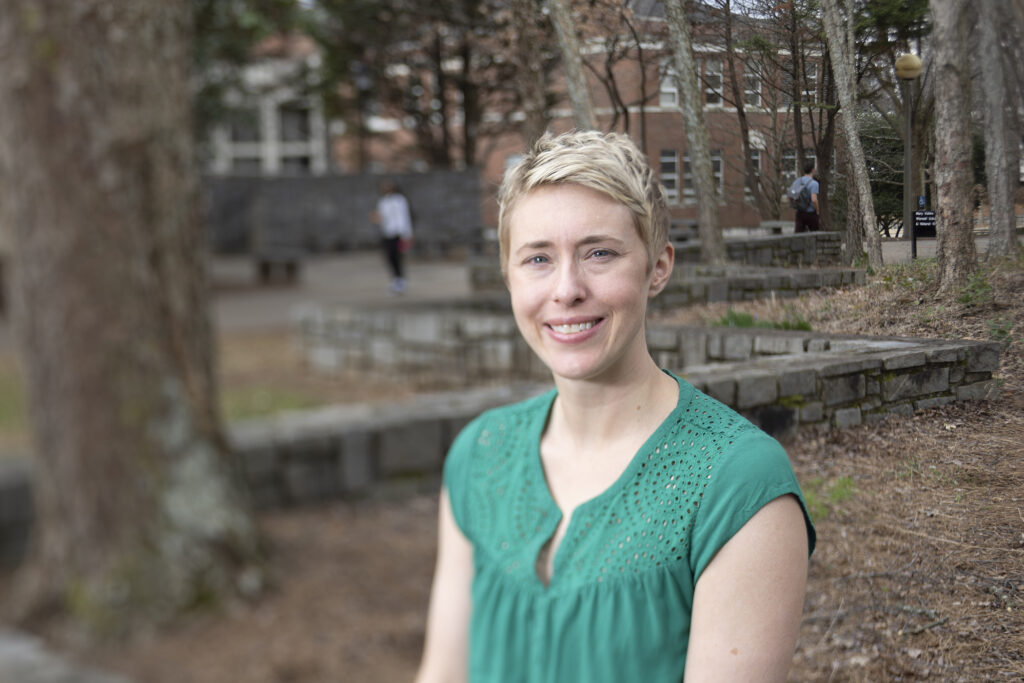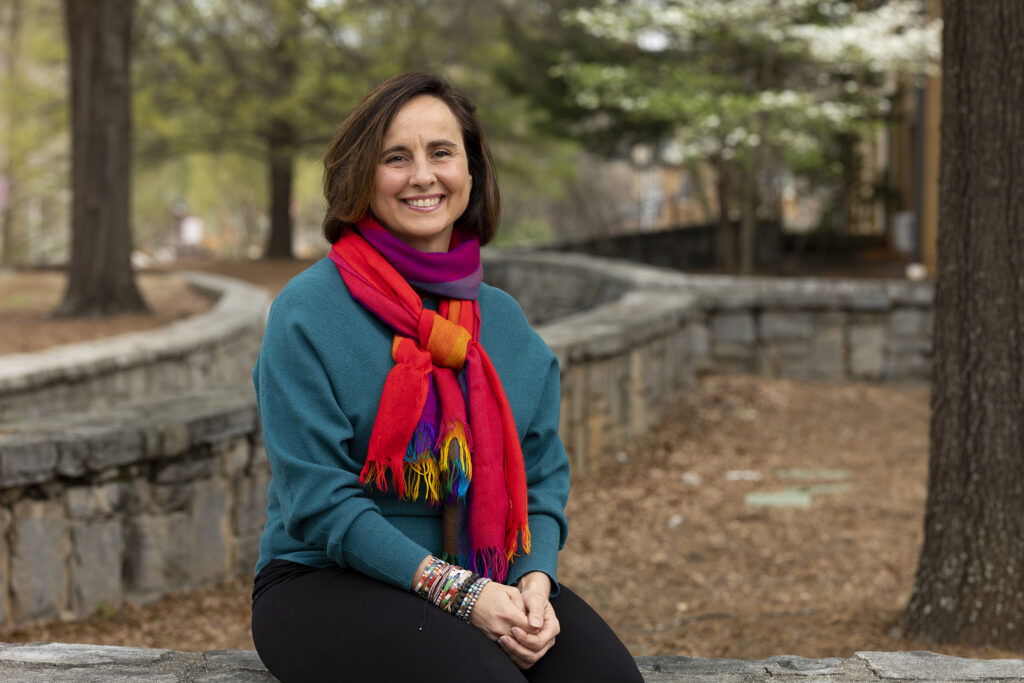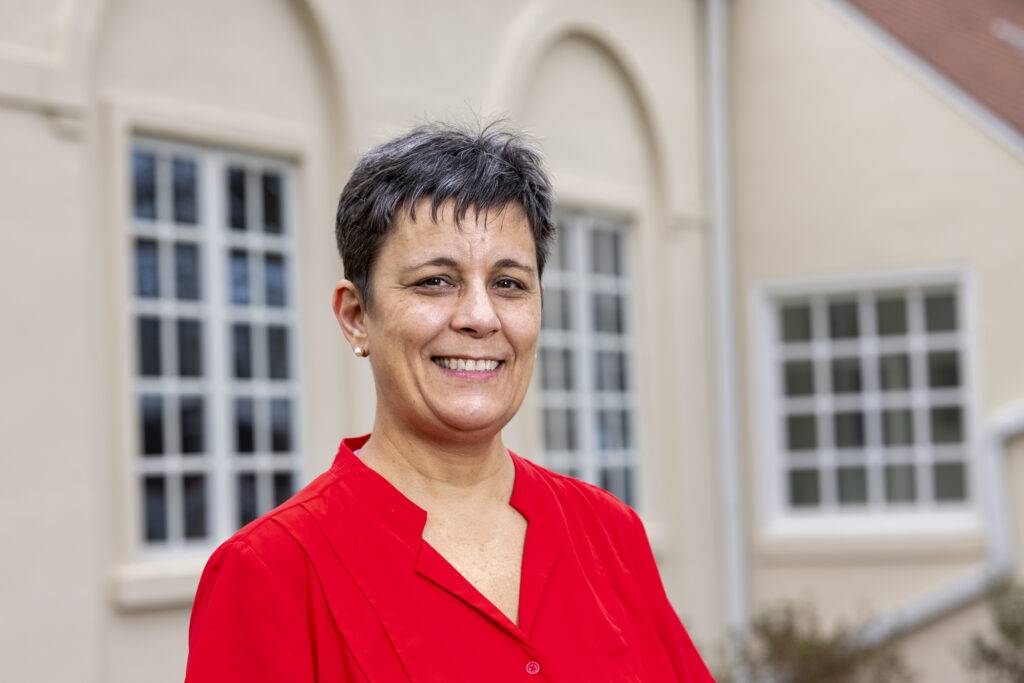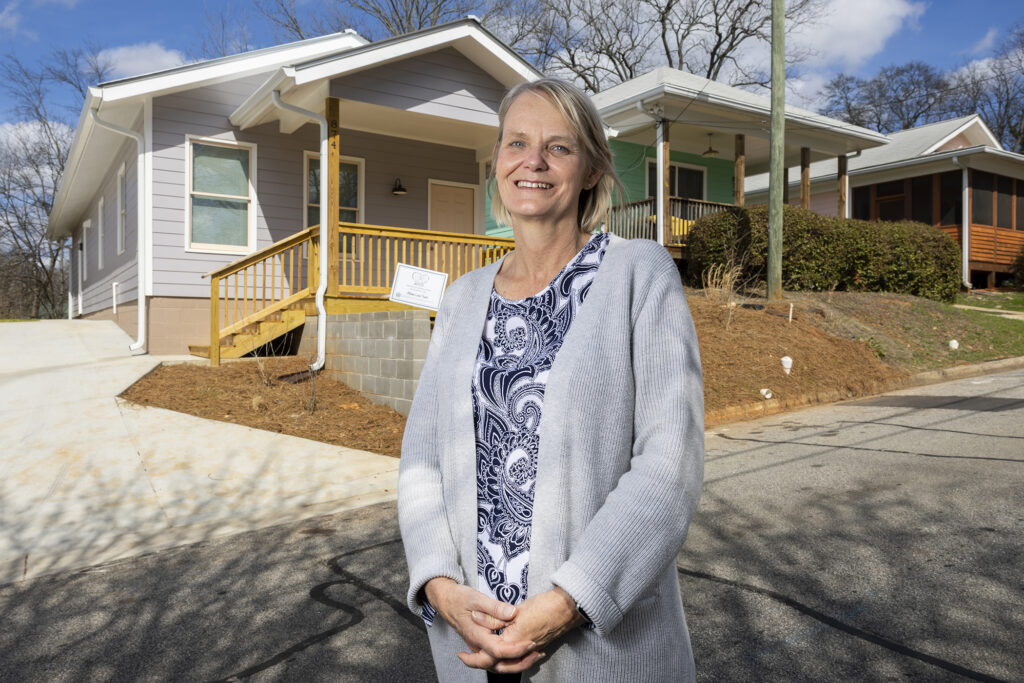The University of Georgia has honored four faculty members with its highest accolade for teaching, the Josiah Meigs Distinguished Professorship.
The Meigs Professorship underscores the university’s commitment to excellence in teaching, the value placed on student learning experiences and the central role instruction plays in the university’s mission.
The 2022-23 Meigs Professors are:
- Tessa Andrews, associate professor of genetics in the Franklin College of Arts and Sciences;
- Sonia Hernandez, professor with a joint appointment in the Warnell School of Forestry and Natural Resources and the department of population health in the College of Veterinary Medicine;
- Maria Navarro, professor in the department of agricultural leadership, education, and communication in the College of Agricultural and Environmental Sciences, specializing in interdisciplinary education; and
- Kimberly Skobba, associate professor of housing management and policy in the College of Family and Consumer Sciences.
“This year’s Meigs Professors embody the University of Georgia’s commitment to exceptional instruction,” said S. Jack Hu, the university’s senior vice president for academic affairs and provost. “They create engaging experiences both inside and outside the classroom that challenge students to apply their knowledge in creative and meaningful ways.”

Tessa Andrews
Andrews uses evidence-based active learning techniques to engage biology students in developing scientific thinking and communication skills while building a deep understanding of the subject matter. In her classroom, students spend significant time working on problems and tasks in small, assigned groups—whether it’s a large class for non-science majors or a small upper-division course.
“I design this work specifically to challenge their thinking,” she said. “For example, I created and refined a set of tasks to help students overcome common misconceptions about natural selection and build scientifically accurate ideas. These tasks elicit student thinking through individual writing and then guide them to reconsider their thinking through discussion.”
In total, Andrews has taught more than 1,900 students since joining UGA’s faculty in 2013 and has mentored 40 undergraduate students as they perform independent research in her lab.
“The most valuable lesson I’ve learned from her was how to be an effective communicator, especially when explaining scientific concepts,” one former student wrote. “Dr. Andrews was the first and only teacher I’ve had who taught her students how to write articles geared toward educating the public. This was an important lesson for me because I aim to be involved in the medical field in the future, and it is crucial to know how to translate and communicate with patients and their families.”
Andrews is a recipient of the Morehead Honors College’s J. Hatten Howard III Award, which recognizes faculty members who exhibit special promise in teaching Honors courses early in their careers. She also received a Russell Award for Excellence in Undergraduate Teaching in 2020. In addition, she is a Lilly Teaching Fellow and a Fellow for Innovative Teaching.

Sonia Hernandez
Those who step into one of Hernandez’s classes are more likely to see students engaged in spirited discussions, game show-style learning activities or role-playing exercises than a traditional lecture. They might even catch Hernandez imitating the songs or mating rituals of certain bird species.
A faculty member since 2008, Hernandez uses a multidisciplinary approach to engage her students in courses related to wildlife diseases and conservation medicine. Her classes, including an experiential learning course taught in Costa Rica, incorporate meaningful real-world experiences because, as she puts it, “learning and discovering by doing sticks best.”
“Always such a great attitude and enthusiasm,” wrote one of her former ornithology students. “I loved going on the hikes in her group because she would get excited about certain things we were looking at and always had interesting stories or information related to what we were doing. And I loved her imitations of bird calls and songs.”
Hernandez brings the same enthusiasm into the classroom. Her Wildlife Disease Investigation course features assignments that require students to play the role of different stakeholders as they debate key decisions in wildlife health. Then, students reflect on how those roles impacted the investigation at hand.
“Her success as a teacher stems from two qualities: enthusiasm for the content and a genuine connection to students,” wrote W. Dale Green, dean of the Warnell School of Forestry and Natural Resources.

Maria Navarro
A commitment to each student as an individual—in the classroom, outside of the classroom and beyond their time at the University of Georgia—is a defining theme of Navarro’s impact as a teacher and mentor.
Navarro teaches on campus, online and study abroad courses for undergraduate and graduate students, and she developed and teaches the department of agricultural leadership, education, and communication’s new Ph.D. capstone course. She has been particularly successful at creating active learning environments using techniques such as case studies, group analysis, mind maps, Post-It parades, jigsaw discussions (where students take the role of both experts and learners), creative assignments and reflections. Most importantly, students point out her ability to make active learning work.
“Dr. Navarro gave me the reins to my education and empowered me to make decisions about my learning experience, decisions that would lead me to continually ask questions and seek their answers,” wrote one former student. “She made me a lifelong learner.”
Navarro’s passion for students reaches outside the classroom. She teaches study abroad and service-learning courses, mentors students working on capstone projects and internships and guides undergraduate researchers. She has received more than 40 awards for excellence in teaching, as well as the President’s Fulfilling the Dream Award and the D.W. Brooks Diversity Award.
“It is impressive how devoted she is to students, and how she listens, explores opportunities, and empowers students to become the best versions of themselves,” wrote Jennifer Waldeck, head of the department of agricultural leadership, education and communication. “Students feel heard, supported, guided, encouraged. They know she has high expectations of them. As a result, they are happier and work harder, better and with more passion.”

Kimberly Skobba
Through her innovative teaching and commitment to service-learning, Skobba has transformed communities across Georgia into classrooms and provided students with valuable hands-on learning experiences.
Students in Skobba’s housing management and policy classes have learned how to assess neighborhood housing conditions, conducted focus groups with Lithonia residents on barriers to homeownership, collected stories from residents of Athens’ West Broad neighborhood and conducted a statewide survey on housing access for low-income citizens. By linking coursework to the Georgia Initiative for Community Housing, these projects benefit both students and the communities participating in the program.
“I seek to support students’ success by creating conditions for student learning and by building trusting, respectful relationships with them,” Skobba said. “I believe that career-long learning and growth are essential for me to be an effective teacher.”
A member of the UGA faculty since 2011, Skobba’s honors include the Russell Award for Excellence in Undergraduate Teaching, the Service-Learning Research Excellence Award and Bill and June Flatt Outstanding Teacher of the Year Award. She is a Lilly Teaching Fellow and served as assistant director of the program from 2017 to 2020.
“Dr. Skobba is a fountainhead of ideas, a tremendous leader and a visionary,” wrote Swarn Chatterjee, head of the department of financial planning, housing and consumer economics in the College of Family and Consumer Sciences. “Her complete dedication to students and her enthusiasm for service learning while making a difference to the community make her an amazing mentor for all the students in our program.”
The Meigs Professorship, sponsored by the Office of the Senior Vice President for Academic Affairs and Provost, includes a permanent salary increase of $6,000 and a one-time discretionary fund of $1,000. Meigs Professors are nominated by their school or college and chosen by a committee consisting of 12 faculty members, two undergraduate students and one graduate student.
More information about the Josiah Meigs Distinguished Teaching Professorships is at provost.uga.edu/resources/faculty-resources/professorships/josiah-meigs-distinguished-teaching-professorships/.


